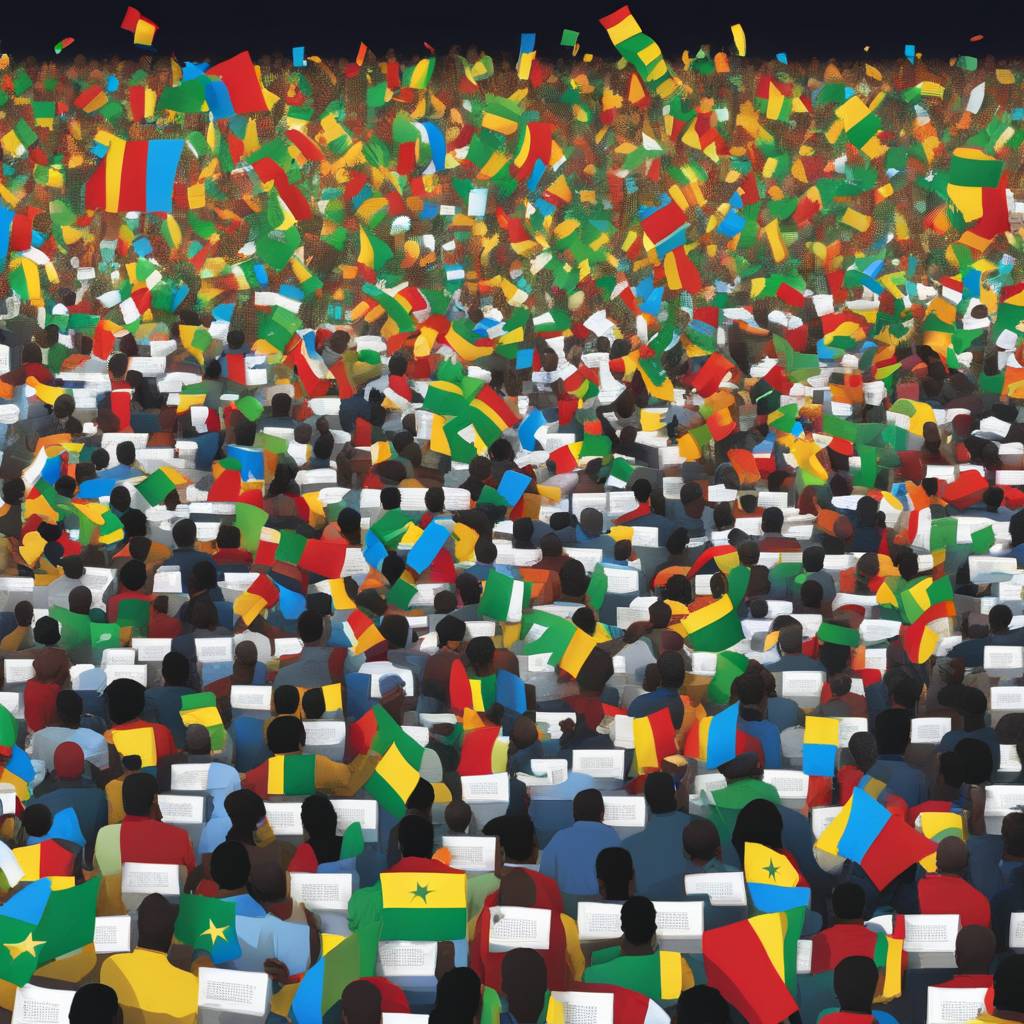Vote counting is ongoing in Senegal following a delayed presidential election that many hope will usher in change after a turbulent political period marked by violent protests and support for the opposition. More than seven million people out of the country’s 17 million registered voters participated in the election where 19 candidates competed to replace incumbent President Macky Sall, who could not run for a third term due to constitutional limits. Sall’s ruling coalition selected former Prime Minister Amadou Ba as its candidate after opposition leader Ousmane Sonko, who was imprisoned until recently, was disqualified from the race.
Despite concerns about delays and uncertainties, lines formed outside polling stations in Dakar as voters eagerly exercised their right to participate in the election. The elite police force was deployed across the city to ensure security during the voting process. Both young and old voters turned out to cast their ballots, expressing a desire for change due to economic difficulties, including high living costs, unemployment, and limited job prospects. The election has generated excitement, especially among first-time voters, as the country faces a pivotal political transition.
The leading contenders in the presidential race include Amadou Ba, representing the ruling coalition, and Bassirou Diomaye Faye, who is backed by Ousmane Sonko. Ba called for peace and expressed confidence in his chances of winning, while Faye emphasized the importance of accepting the election results. The political camps in Senegal are divided between those supporting economic liberalization policies and those advocating for new economic strategies, such as the introduction of a new currency and renegotiation of energy contracts with oil and gas operators. Issues surrounding economic development and resource distribution have been central to the campaign.
The election has been closely monitored by election observers from various organizations, including civil society groups and international bodies like the African Union and the European Union. Despite concerns about the fragile economy and rising living costs, the voting process has been relatively calm and peaceful. The election has highlighted the aspirations of the Senegalese people for a democratic and transparent political system that addresses pressing economic challenges, particularly in terms of unemployment and youth empowerment. The outcome of the election is awaited with anticipation, as candidates await the official results and potential run-off if no candidate secures more than 50 percent of the vote.
The opposition coalition, led by Ousmane Sonko, has pledged to renegotiate energy contracts to maximize revenues for the country and ensure that the wealth from natural resources benefits the wider population. In contrast, the ruling coalition candidate Ba has campaigned on the slogan “Prosperity Shared,” emphasizing economic growth and development. The election represents a critical moment for Senegal’s political landscape, with differing visions for the country’s future at stake. Regardless of the outcome, the election process has underscored the importance of civic engagement, democratic participation, and peaceful political transitions in Senegal.
As Senegal awaits the final election results and a potential transition of power, the country stands at a crossroads, grappling with economic challenges, political uncertainties, and societal expectations. The successful completion of the election reflects the resilience and commitment of the Senegalese people to democracy and good governance. Moving forward, the new administration will face significant tasks in addressing the country’s economic woes, creating job opportunities for the youth, and ensuring equitable distribution of resources for the benefit of all citizens. The election has provided an opportunity for reflection and renewal, signaling a new chapter in Senegal’s political history.













